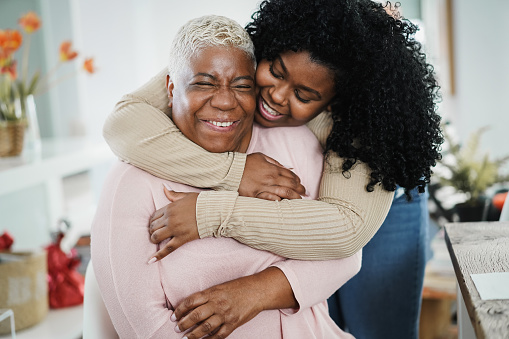Shimbo Pastory
This article was published in The Citizen Newspaper, Tanzania on 6th October, 2023.
Among indicators of dignified care in any society is how people are treated with respect and equality despite their needs. It is necessary to examine our progress in responding to the duty of care, especially among people with needs in our society as everyone is at some point in need of dignified care.
The elderly, according to the United Nations are among the fastest growing population, even more than that of children from 0 to 5 years of age. According to World Health Organization factsheets, in 2018 it was recorded for the first time in history that people aged 65 and above outnumbered children aged 0 to 5 years.

The growth soars high alongside the survival of infants. WHO statistics establish that since 1990, the global under-5 mortality rate has dropped by 59%. While on average 93 children in 1,000 children would die before the age of five in 1990; the number dropped down to 38 children in 2021.
The lower mortality rate among older persons is due to improvements in living conditions and healthcare. According to the UN, the projection is that the number of older persons (65 years and above), will rise to about 17 per cent of the entire global population by 2050.
The 2019 World Population Prospects review foresees that by 2050, 1 in 6 people globally will be over the age of 65 (16%), in Europe and northern America 1 in 4 people could be 65 and over.
While global healthcare adapts itself to cater for the fast-growing elderly population, society too needs to adapt to the same. In the Tanzanian context, our culture, even in its diversity, upholds elderly people, treating them with honour, as repositories of our traditions and history, as wise people, and as models for the young.
However, there are cases of abuse of the elderly, negligence in care, denial of basic needs, and extreme prejudices in some places that lead to loss of lives. We have heard in the news recently about children who killed their old parents, and occasionally of people lynching older persons for witchcraft claims.
The younger generations need to be rightly guided in caring for older persons. They may not be wealthy, or technology wizards, or academics; and they may not be at pace with the fast-moving world or with things that fascinate most of the young people, but they have all that is needed to earn respect and dignity.
In giving a generic guideline as regards care for older persons, the UN specified areas of priority, in which the integral and all-encompassing care can be interpreted and fundamental human rights rightly contextualized in the same. These priorities are Independence, Participation, Care, Self-Fulfilment, and Dignity. (UN Principles for Older Persons, 16 Dec. 1991, Resolution: 46/91).
Independence entails access to basic needs, work, safe living, and having a place to call home. Participation entails remaining integrated in society, not ostracized, and free to associate, especially with other older persons. Care entails access to healthcare, social and legal services, protection, rehabilitation and social support. The resolution demands that all these have to be given to them with full respect to their dignity, beliefs, needs and privacy.

By promoting self-fulfilment for older persons, society ought to allow them to pursue opportunities to improve themselves through education, recreation and spiritual activities.
Finally, promoting dignity calls on society to allow older persons to live freely and be treated fairly regardless of their age, gender, racial and ethnic background, or disabilities. They are to be life free from exploitation and physical and mental abuse. (UN, Principles for Older Persons and The Protection of the Elderly Model Law).
In caring for the elderly, culture deserves consideration. In Europe, independence even at old age is cultural and is promoted. Living independently is ‘One of the goals of health ageing’ (Horizon, The EU Research and Innovation Magazine).
In Europe and Northern America, older persons live in small households with fewer than 3 persons in total, and about 1 in 5 older persons live alone. In Africa, alongside Asia, Latin America and the Caribbean, it is different, as the majority of older persons (grandparents) live mostly in extended families. (UN-DESA, Population Facts, April 2019).
These cultural dynamics should be considered in promoting the duty of care for the elderly. It needs to be incorporated into school learning early enough as living with the elderly is a reality most people in Africa will encounter at some point in life. This will help make young people look at older people with respect, dignity and love from when they are young and will minimize the possibility of them abusing or neglecting the elderly when they grow up.
